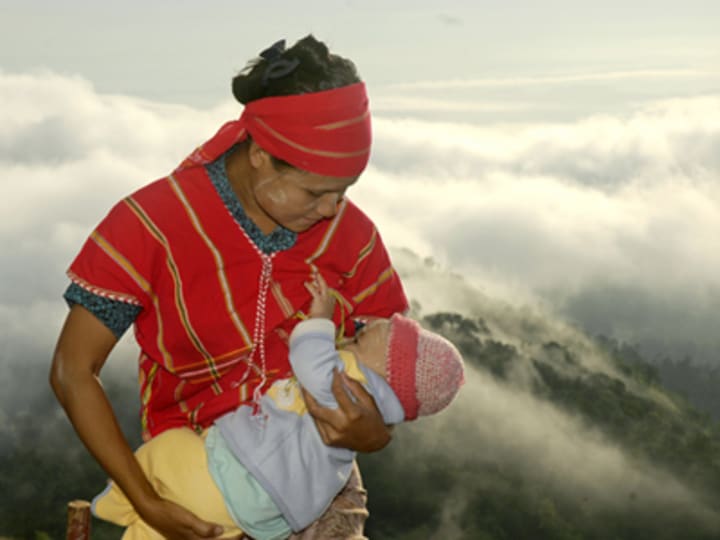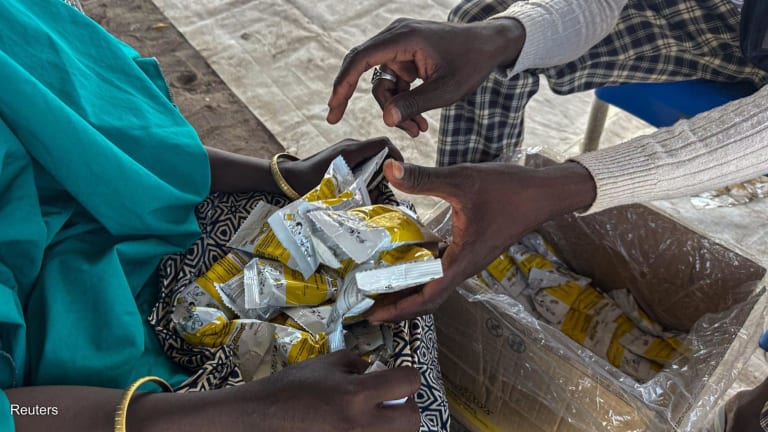
Insufficient infant nutrition is a staggering problem.
Out of 135 million babies born each year, 83 million are not properly breast-fed. Those millions of infants face severe health risks at the very beginning of their lives because they are given formula or other foods.
So why do we have to be silent about it?
Several resolutions on infant and young child nutrition adopted by the World Health Organization — such as the International Code of Marketing for Breastmilk Substitutes in 1981 and the Global Strategy for Infant and Young Child Feeding in 2002 — have committed governments, global communities and the United Nations to a plethora of actions; yet the rates of optimal infant and young child feeding practices continue to stagnate.
Why? The reasons are obvious. We do not invest enough in breast-feeding. We just take it for granted that women do it anyway, that it is a matter between a mother and a child.
READ:Breast-feeding needs more aid
How long shall we continue to ignore the risk of not optimally breast-feeding babies, which can lead to disease, death, and for scores of newborns, impaired development. Further and higher prevalence of obesity, diabetes, high blood pressure, heart attacks and cancer as adults?
Not just promotion
The World Bank estimates the cost of scaling up interventions required for promoting breast-feeding to reach $2.9 billion.
However, this amount is limited to only one part of the story — promotion. It does not include more critical components like protection from the aggressive marketing techniques of formula makers, and support at the workplace, vital to help mothers practice exclusive breast-feeding for at least the first six months. Other key interventions include provision of professional assistance for breast-feeding in health facilities, community-based counseling services, as well as pre- and in-service training.
According to a report launched Tuesday by the International Baby Food Action Network, a minimum of $17.5 billion is needed to put in place a comprehensive set of interventions to protect, promote and support breast-feeding globally and reduce the risks of formula feeding. This is just an annual amount, though certain elements could be one-time solutions.
In the struggle to promote breast-feeding for the better health of our babies, we must move from rhetoric to comprehensive, coordinated action for protecting, promoting and supporting women to breast-feed — and make funds available for it. It is a public health imperative and an economic necessity. It is also a human rights obligation.
On maternity protection legislation, we must follow the example of countries such as the United Kingdom, which recently decided to subsidize breast-feeding mothers with 200 pounds a month, or India, which has recognized the right for assistance to breast-feed in the landmark 2013 food security act. This demonstrates there is increasing recognition of women’s need for financial support on this issue, and it needs to continue.
Investing in health
It is time to implement the necessary interventions to universalize optimal breast-feeding, and national governments, donor agencies and multilateral organizations and institutions must make the resources available.
Raising breast-feeding rates can propel developing nations to improving child health, reducing child morbidity and mortality, increasing the overall intellectual capacity of society and reducing noncommunicable disease.
It even saves money. For instance, the United States alone would not have to spend up to $13 million on health if 90 percent of mothers followed the recommendation of exclusive breast-feeding for six months.
This is why investing in breast-feeding is investing in health.
Join the Devex community and gain access to more in-depth analysis, breaking news and business advice — and a host of other services — on international development, humanitarian aid and global health.




